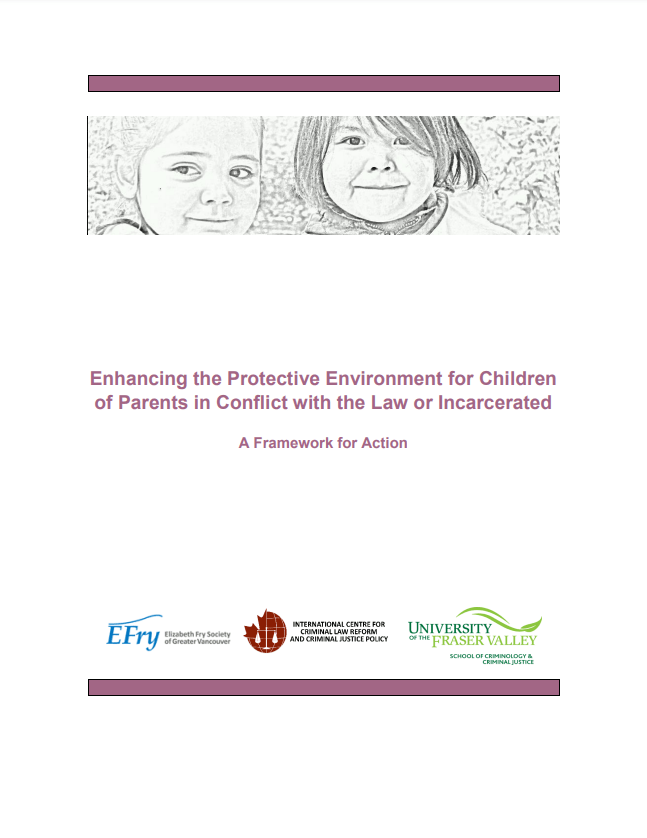Search the Baseline Project
To search the recommendations database, please visit the database main page.
To search the recommendations database, please visit the database main page.

In December 2018, the “Enhancing the Protective Environment for Children of Parents in Conflict with the Law or Incarcerated A Framework for Action” was co-produced by the Elizabeth Fry Society of Greater Vancouver, the International Centre for Criminal Law Reform and Criminal Justice Policy, and the School of Criminology and Criminal Justice at the University of the Fraser Valley. The purpose of the framework presented by the report is to encourage agencies and organizations (with different remits and responsibilities), local Indigenous leadership and institutions, and all others who need to be engaged in enhancing the protective environment for children to work together towards family-focused outcomes for every family affected by the criminal justice system.